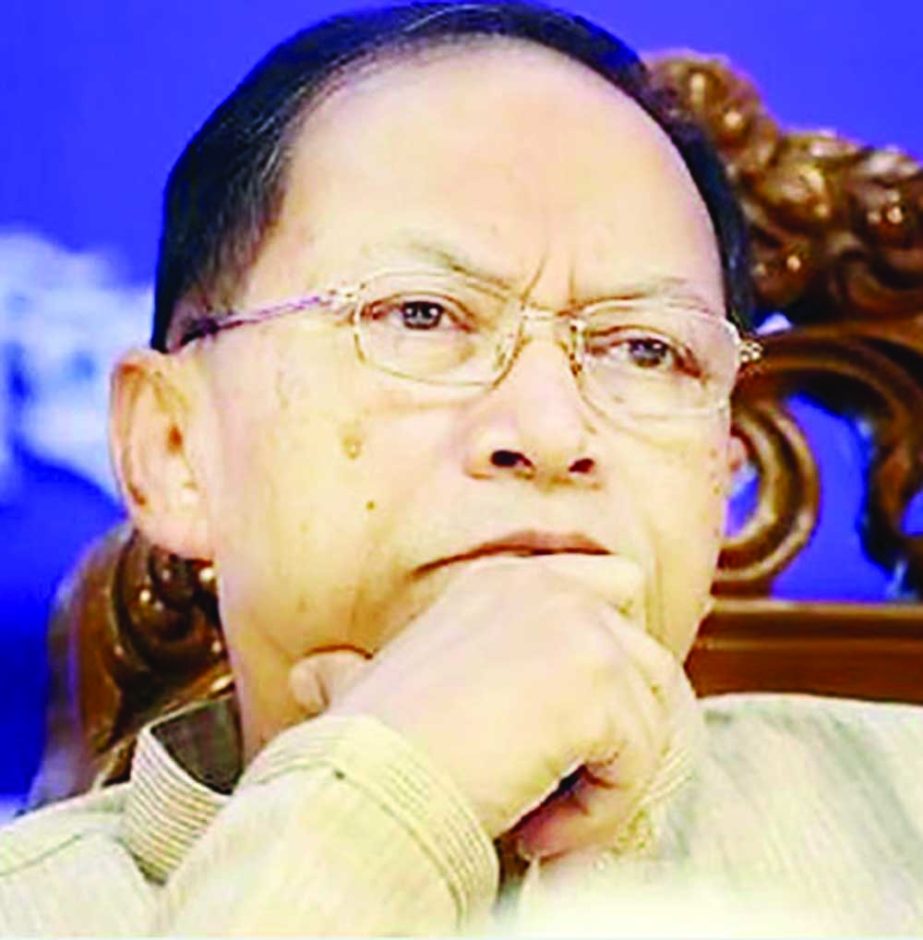
News Desk :
As one of 22 chief justices appointed since Bangladesh’s independence, Surendra Kumar Sinha has been a man of many firsts, drawing widespread plaudits and condemnation along the way.
Taking oath as the first non-Muslim head of the judiciary in the Muslim-majority country on Jan 17, 2015, he has now become the first former chief justice to be convicted in a graft case on Tuesday, capping an ignominious fall from grace, bdnews24.com
“No one is above the law,” said Judge Sheikh Nazmul Alam of the Special Judge’s Court-4 after sentencing Sinha to 11 years in prison in the case over the laundering of Tk 40 million from the Farmers Bank, now known as Padma Bank.
Born to the minority Bishnupriya Manipuri community, he was also the first chief justice in the country’s history to have stepped down from office in November 2017, 81 days before the end of his scheduled retirement.
Amid criticism by the ruling Awami League over his verdict scrapping the 16th constitutional amendment designed to empower lawmakers to sack top court judges, Sinha left Bangladesh a month before his resignation and has stayed abroad since then. The government said he was sick, but before leaving Bangladesh, Justice Sinha said he was “not sick, but embarrassed” at the criticism by the ruling Awami League.
After his resignation, the Supreme Court said in a rare statement that Justice Sinha had been facing 11 specific charges, including corruption, money laundering, financial irregularities and moral blunder.
Some ruling party leaders described Sinha’s activities as “efforts to topple the government through a judicial coup by a judge”.
In his 1,030 days as chief justice, Sinha had been vocal against ‘interference’ of the executive in the judiciary.
He went to say there was an attempt to create a chasm between the judiciary and the administration, to which Prime Minister Sheikh Hasina responded that a conflict was not expected.
In a book titled “A Broken Dream: Rule of Law, Human Rights and Democracy” and published in 2018, Sinha said that he resigned in the face of “intimidation and threats”.
“After delivering a historic verdict in favour of the independence of judiciary, I was forced to resign and exiled by the current government,” Sinha wrote. “It was unprecedented in the history of the judiciary.”
The former chief justice’s row with the government over publishing the gazette notification for services rule for lower court judges often made news headlines.
His bickering with Justice AHM Shamsuddin Choudhury, who retired last year and wrote to the president seeking the chief justice’s impeachment, attracted a lot of attention.
Justice Sinha was on the appeals bench that heard the 13th Amendment appeal and scrapped the provision for the caretaker government to oversee general elections.
He was also part of the bench that heard the 2009 appeals in the Bangabandhu Murder Case and has been an appeals judge in the ongoing war crimes trials.
He created a buzz even before the president appointed him as the country’s top judge.
During the hearing of a war criminal’s appeal, Justice Sinha said that in 1971, he was a member of the Peace Committee, formed to help the Pakistani forces in suppressing the freedom struggle of the Bengalis.
Sinha had said he had done it to “save his life”, but he used to pass information in the night to freedom fighters.

